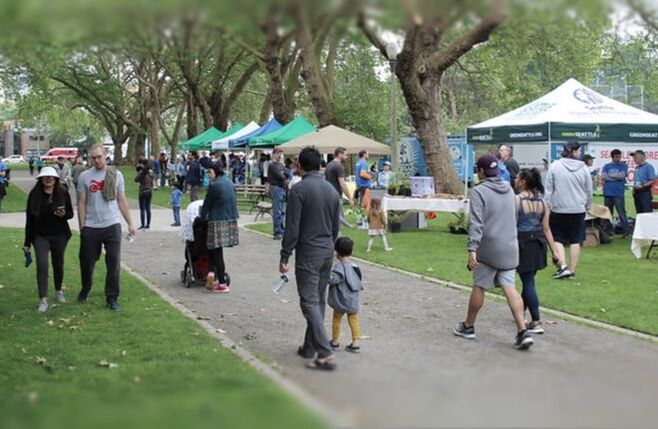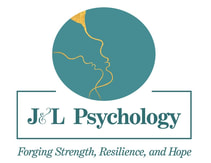|
By Emily Brackman, PhD “Recovery can only take place within the context of relationships; it cannot occur in isolation.” – Dr. Judith Lewis Herman While we are more "connected" than ever before, technologically speaking, it has been a long and lonely pandemic for many if not most of us. Even with constant, immediate, and seemingly endless outlets for virtual contact, loneliness and longings for meaningful social connection are at an all-time high. In the Japanese art of Kintsugi, broken pottery is repaired with a bonding substance lined with gold to create a new, beautiful, shimmering object by integrating and honoring past pain. As we each reassemble the pieces of our former way of life to build an even stronger foundation, it is important to remember that our ties to loved ones, friends, family, and community can serve as the glue that holds us together. As a team of mental health professionals at J&L, we recognize that there is no one-size-fits-all cure for loneliness. We have put together 5 suggestions of things you can do If you are struggling to connect with others and are looking to build community. 1. Prioritize in-person connections at home and outside (when you can do so safely)
To create more space and time to bond with others outside the virtual landscape, we may need to readjust our idea of what it means to have a meaningful in-person encounter. The everyday interactions we took for granted in a pre-COVID world may need to be more intentional, even planned. J&L Psychology cofounder Dr. Jennifer Newman recommends you “disconnect to reconnect with the world, other humans, and yourself.” This means turning off notifications on your phone, setting blocks of calendar times to busy and using that designated time to take a walk, get the mail, or meet a friend for coffee. When existing relationships begin to take a back seat to work or professional obligations, it may be because lines tend to blur between different roles in a largely virtual world. Step back and ask yourself, as Dr. Michael Levy suggests, if you can “find a way to create distance and separation between your work and home life.” A Washington Post Wellness article touted the benefits of creating a “fake commute” to build in transition time between work and home, for those still using a remote office. Mealtimes taken at the kitchen table with loved ones and without electronic devices also can re-establish important boundaries. And personalize your Slack settings (DND mode) for when you need a few minutes of downtime to do an errand or check your child’s homework. For those working from home and longing for water-cooler days, he encourages you to consider asking “coworkers or friends that you'd feel comfortable working alongside at your place, theirs, or in a coworking space” to meet up and get work done together. This may be blurring lines of work and home, but at least it happens in good company. Check out in-person events in your community on Eventbrite.com. 2. Nurture healthy forms of connection with yourself Regardless of our social landscape, we cannot escape the relationship we have with ourselves. Fostering a deeper sense of connection to our own pain points by tuning into – rather than avoiding or ignoring -- our sadness, mourning, or fear serves as “a signal from yourself right now that is important to listen to,” Michael says. He advises to “think creatively about how you can nourish parts of yourselves that aren't being nurtured at the moment.” Taking care of your own body and mind can set you up for success in your daily social interactions and ongoing relationships. This can include healthy sleep habits and balanced eating, or, as Jennifer suggests, may mean cultivating small quiet and calming moments with yourself such as “lighting a candle, playing music that lightens your mood, finding movement that feels good, or sitting in a local park in a ray of sunlight.” If you are feeling down on yourself because you are disconnected from others, remember that developing compassionate and kind self-talk often is more beneficial for motivating change than a harsh, self-critical inner voice. If you find you tend to get bogged down by self-criticism or doubt yourself, try asking yourself: “What would I say to a friend in this moment?” This simple question can help you generate a more compassionate inner dialogue. 3. Start small and keep your social goals aligned with personal values Depending on your phase of life and current social environment, you may be finding yourself looking for new connections for the first time in a long time. If you are out of practice forging new relationships, “You may need to take it slow,” Jennifer advises. “Be patient with yourself and adjust your personal expectations. Be creative with finding new opportunities to connect with your environment, others, and with yourself.” She recommends you “start with your own values of what is important to you; take from the lessons of the past with what worked for you and see what applies now and what doesn't” when it comes to lining up your social goals with your personal values. If you have not thought about seeking out new friends or expanding your social circle in a long time, it is a good idea to think about what your social goals are before trying additional ways of meeting new people. Are you looking to have fun? Engage in philosophical discussions? Listen to music? To find like-minded people with shared interests, consider checking out the dating app Bumble’s BFF feature to meet others looking to forge new friendships, or take a look at the local class offerings at community centers or educational institutes in your area. Another great way to improve your sense of connection to community is by local volunteering opportunities or engaging in various acts of service for others. Through this process of self-reflection you may be reminded of certain activities you enjoyed as a child or return to things you have not engaged in since before the pandemic. J&L administrator Lawrence Morgan suggests that “hobbies are the best way to create social connections. If you identify the things that do bring you joy, then it’s easier to identify a group of people with shared interests.” Take a look at groups in your area with common interests or to get new ideas about activities you enjoy at Meetup.com. 4. Expand your comfort zone while keeping it local While technological connections can take us all over the globe, we can enhance our sense of community by remembering to look around us in our own home environments and familiar contexts. Many find that sticking to their comfort zone and who and what they know reduces anxiety and feels safer than taking bigger social risks. Examples are joining a local sports league or taking a college course at a nearby university or community college. If you’re not ready to sign up for an ongoing social commitment, that’s OK. You can form a bond just by walking down the street. J&L therapist Beth Phillips, LCSW, recalls how a recent and unexpected encounter in her town might have been a missed the opportunity had she not chosen to strike up a conversation with a stranger. She shares: “On a recent walk in my community with my husband one snowy morning we offered an older gentleman whom we passed a simple ‘Good Morning.’ A few niceties [later] … we struck up a deeper conversation with him and learned that he had been a professional boxer in his younger years. He’d even held an international boxing title at one time. As we walked away, we felt like we’d made a new inspiring friend and were in awe that this kind and talented soul lived right in our neighborhood! But we’d never have known it had we not had we not offered him that simple ‘Good Morning.’” Striking up conversation with a stranger can be a daunting task for many of us, Beth reminds us that the “chances are high others in your community are feeling isolated and looking to make new connections, as well.” Beth says that even though you initially may feel afraid to speak up first, see if you can muster the courage – even just fake the courage -- to offer a “Hello” or a “Good Morning.” “A simple greeting,” Beth says, “can be a gateway to learning that story, forming a connection, and being inspired.” To increase the chances of a meaningful and unexpected social encounter, consider spending solo time in an inviting and safe community space on a consistent basis – such as a coffee shop or community garden. If you tend to frequent these spaces with headphones on and spend your time looking down at your phone, minor adjustments to how you show up can make a difference. Making eye contact and offering a non-verbal greeting such as a smile (or a head nod if wearing a mask), asking a follow-up question, commenting about the weather or news, or saying “yes” to unexpected invitations or offers can may lead to potential social opportunities. 5. Know that you are not alone, no matter how alone you feel There is no doubt that isolation can make it seem as if you are the only one going through emotional challenges. Jennifer underscores that “feeling isolated right now makes total sense” and highlights the importance of sharing your experiences with trusted people in your life. We all can overlook the healing power of truly listening, and of being heard. Seeking out group therapy or support group spaces can be “a great way to engage with others in either a virtual or in-person format,” adds Lawrence. Zencare.com and Psychologytoday.com are great resources for seeking local group therapy options in your area. Finally, exploring your experiences with a therapist, supportive friend, mentor, or peer can help us all to understand ourselves more deeply and may help you to “figure out options to help reduce the isolation [you] are feeling,” says Jennifer. Sharing our vulnerabilities with others “offers a process of self-discovery, insight, identification, and action” and can facilitate a sense of personal connection at the same time. At J&L Psychology, our skilled therapists are available to help you if you are struggling with feelings of disconnection and isolation. Reach out to us to explore available options. Community & Connection Resource Guide:
Comments are closed.
|
Categories
All
Archives
March 2024
|
Home The Practice FAQs Practice News & Blog Stress & Anxiety Depression Trauma Couples Therapy Child Therapy, Parenting Coaching & Family Therapy Self Development Treatment For Professionals Contact
J&L Psychology Group, PLLC302 5th Avenue, 11th Floor, #1112, New York, NY, 10001
(646) 609-6323 If this is a mental health emergency, please call 911, go to your nearest emergency room, or call or text the Suicide and Crisis Lifeline at 988. Stay up to date: |
Follow us on Facebook and Instagram:
© Copyright J&L Psychology Group 2021
|


 RSS Feed
RSS Feed
